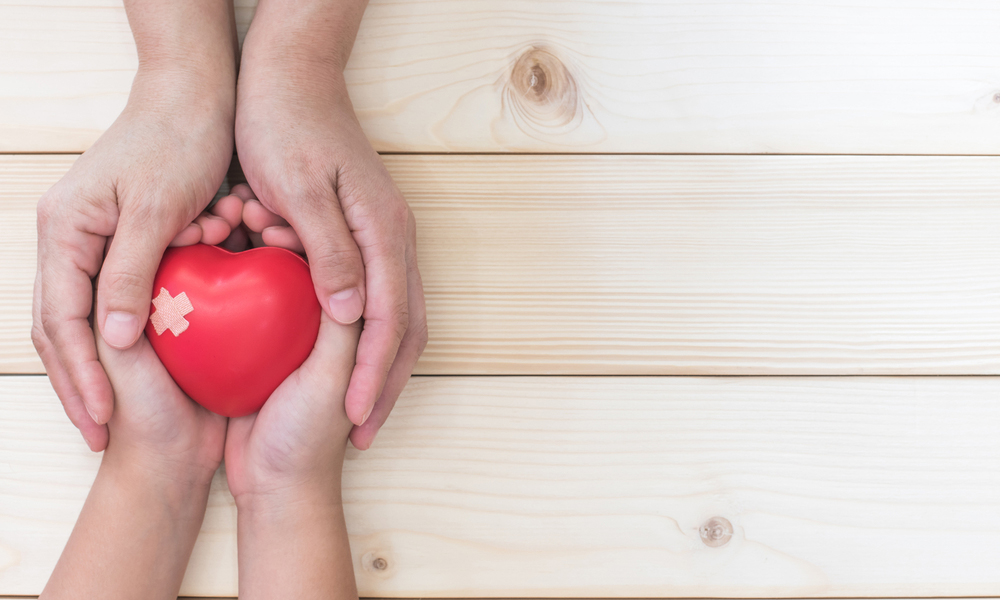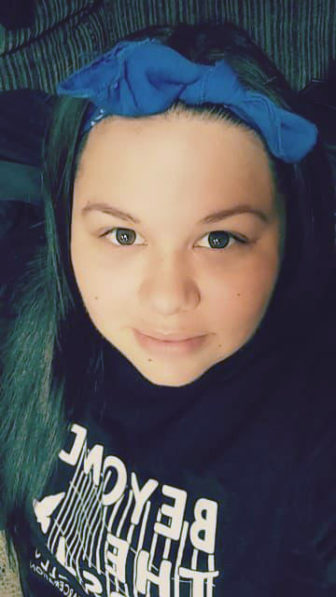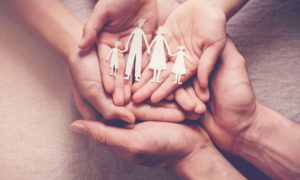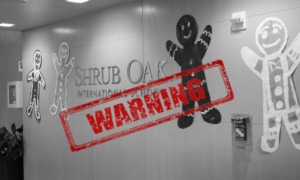
Chinnapong/Shutterstock.com
.
I was in the Department of Child and Family Services foster care system for nine years of my life. It was my childhood, during which I was abused, beaten, raped, starved and completely broken. In those nine years I had 10 foster “homes” and two group homes. The journey began in Stockton, California, when I was just 10 years old. From there, it would take six years before I would finally find a place I could actually consider home. This is the story of what I survived in the hopes it can help just one other person survive, too.
In the very first foster home I went to, my foster mom was very abusive. A week after my 10th birthday, we moved into a home — my baby sister, big sister and I — where our foster mom would either nearly starve us or feed us nothing but food that was expired and moldy. During the summer, when temperatures reach triple digits, she would keep us outside all day. We were not allowed to have any shade, and if we went and took some water we were punished for doing so.
That first summer I was also raped by my foster dad. He told me if I ever told anyone that nobody would believe me, and that if I did tell he would rape my baby sister, too. I wouldn’t let her go through that, so I kept quiet. It lasted for four months straight, every night.
Eventually my dad got our social worker switched and that social worker moved us out of this so-called home the very next day. My dad wasn’t with our family at the time because he was incarcerated and in the process of going to trial for false accusations made against him. As an identified gang member with a record though, we all knew that he would eventually be found guilty. When he found out my little sister and I were in foster care, he pled guilty, knowing he would get less time.
A Series of Abuses
At our next foster home, my sisters and I hoped things would be better, but then my little sister and I were separated from our older sister as she got to go home with our mom. From there, at 10 years old, I had to grow up and protect my 5-year-old little sister from the abuse we would soon come up against.

Alyssa R.
That second foster home seemed very nice at first. Our foster mom had kids and animals and games, which we thought would be good for us to be safe and have fun. But then after just our first week there, her kids went through our stuff and took what they wanted. To make matters worse, in the process of stealing from us they also beat my little sister with their heavy, bulky toys. When I heard my little sister crying, I went to our room and saw her on my bed. I asked what was wrong, and she said she missed our dad and that her back hurt. Shen pulled up her shirt, and on her spine was a big purple welt. I tried to touch the welt, and she screamed out in pain.
I ran out of our room and hit both our foster mom’s kids with the same broken toys they used to beat my little (petite, 30-pound) sister. Then I ran to their mom, who was in the shower and wouldn’t answer her door, to try to tell her what happened. She was just mad that I went into the bathroom without waiting for her to get out. I told her I was getting ice for my little sister’s back, but she would punish me for that. I took care of my little sister as best as I knew how from that day on, but to this day she has a scar from that ordeal.
After our first month there, the same foster mom left us at a friend’s house while she and her family went on a vacation. Still being just about 10 years old, I didn’t know what foster care was or what the rules were, so when she left us there and said it was normal in foster care I believed her.
Her friend was even more abusive. We weren’t allowed to talk or play with her kids. The only time we could leave the room she forced us into was when we had to use the restroom. She was a foster mom, too. She had a teen girl and a baby boy as her foster kids. But she would never change the baby’s diaper until it overfilled everywhere. And when that happened, she would tell me to change it because it stunk too bad for her to do it.
After I’d clean the baby’s diapers, I had to go back to solitary confinement. My baby sister and I lived like this for an entire month before our assigned foster mom came back for us. It was the summertime, so there was no school, and the case worker never came around except to tell us how court went “on our behalf.”
Biological foster care
At the time, my dad had been fighting for my sister and me to be relocated to a better home. Finally, we went to be fostered by biological family members (paternal grandparents), and it went well for a while because we got to see our dad every day.
I’m a daddy’s girl, so my dad and I had always been close. My dad was my rock, my best friend. We were each other’s ride or dies. I loved seeing him every day, until my abuela got jealous that my sister and I loved him more than anybody else. I tried hard to make my abuela love me and tried to spend time with her because I grew up without a real mother figure. But my abuela never liked my birth mother, especially after what she put my dad through. I was emotionally and verbally abused while I lived with her, and I attempted suicide three times.
I remember that I would write my dad and little sister suicide notes, telling them how I loved them, how to carry on without me and how I would always be around even if I was gone. And that I would be sorry for hurting them.
Every time I tried, though, my dad would somehow know and stop me. One of the main reasons I kept trying to end my life was the way my abuela talked to me and treated me.
After my third attempt, though, I went into a 72-hour hold, and the experience changed my life. What I saw and heard during that hold has remained with me ever since then, and I’ve never attempted suicide since.
I decided to help others
When I came back home to my abuela’s house I realized how many people would actually care and be hurt if I was gone.
So, I decided I would help as many people as possible, in any way possible. After I finished eighth grade, my abuela didn’t want us anymore, so my sister and I were separated. Luckily though, at 7 years old, she was still little at the time, and she got some amazing foster parents.
I would still have to put up with one more abusive foster home, where I wasn’t even called by name but instead just referred to by my last name or as “she” or “it.” I was locked outside by that family, and even left in different counties on my own by them, where I was forced to find a way back or freeze to death and be considered a runaway.
My social worker didn’t seem to care because the foster mom gave her gifts every time she came over. Again, this foster mom, like so many of the others, knew that what she was doing was wrong, but she didn’t care — at least until my dad got involved again.
She knew she’d have to answer to my dad because he would make sure to check up with her through the process. Eventually I was moved from that “home” after several months of endless abuse and bounced around to more foster homes, respites, or temporary care centers and placements where sexual, physical and mental and verbal abuse by the parents or people close to them were also just the norm.
I eventually found my best foster family at age 16. The Buenrostros accepted me as their own and considered me to be like their bloodline. When my dad finally got custody of me just three months before my 18th birthday I was so happy, because we had worked so hard for that for years, but when moving-out day came the Buenrostros and I cried because we all thought I was going to stay with them until I was 18.
Choosing Family
One thing about me that most people know is that I choose my family. My dad passed away in 2015, and it was the hardest day in my life. To make matters worse, my own blood family, who lied to my dad on his deathbed when they promised they would take care of my sisters and me, just left us and wanted nothing to do with us. All they wanted from him was his stuff.
A select few of that blood family still love us and help us whenever we need it, but now the point of choosing my family is that I can choose to call people family for more than just being related to them.
I once heard: “Blood makes you related, [while] loyalty makes you family.”
And it’s too true, my familia … Thank you, I love you all. My baby sister Lilly (my baby), everyone at InsideOUT Writers, the Buenrostros, my “adopted” sister Rose (who inspires me), Ryan (taking me in and making me family when he didn’t have to), Evelyn (ride or die sister), my amazing boyfriend (I love you) and everyone else who has made it through this journey with me.
Thank you for never giving up on me, and I promise I’ll make you all proud.
Today I am working two jobs and picking colleges to attend in the fall. I am also fighting for custody of my little sister and working hard for my future dream: to help “troubled” foster youth and open a nonprofit with my true family to improve the lives of foster youth by providing real resources and support.
Just because DCFS failed me for many years doesn’t mean I’m going to let that failure continue for future foster youth. To the social workers and the others who work in the field: You should care and try to make a difference in the youths’ lives instead of being concerned just about the money. These are lives on the lines, not paychecks.
And to the current foster youth out there: Your dreams are not dead. Never give up. We are all connected by our struggles and situations throughout systems like DCFS and beyond. You are not alone. Don’t let your past stop you; let it push you forward. Don’t be another statistic. We stand together, we are family.
Alyssa R., 21, is a youth mentor and Christian camp staff member from Los Angeles. She enjoys cooking and helping others. When she’s not working at camp, she spends time with her friends, family and loved ones, especially — when she is able to make the trek out — at the InsideOUT Writers office, which is home.































